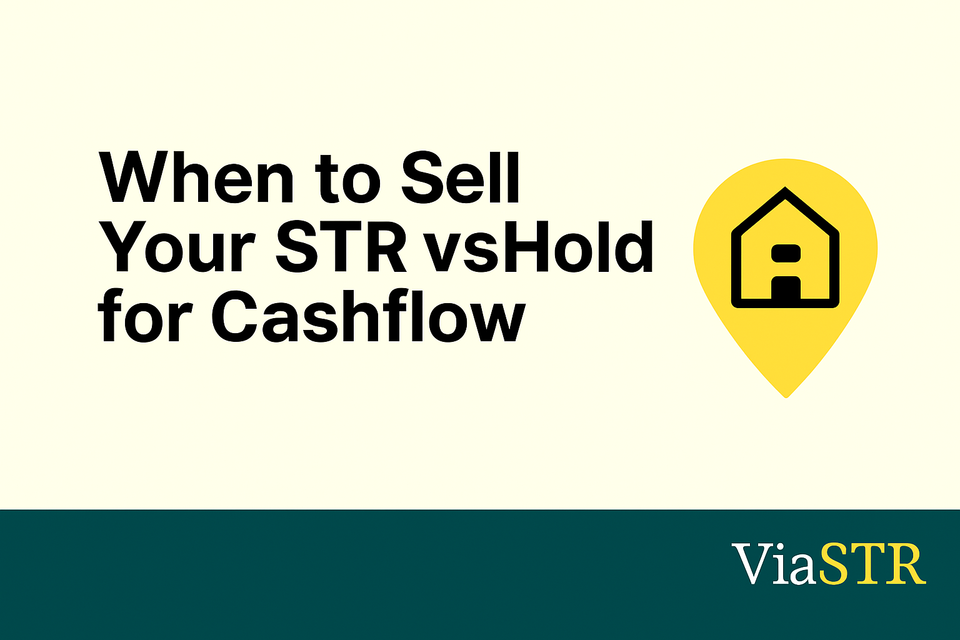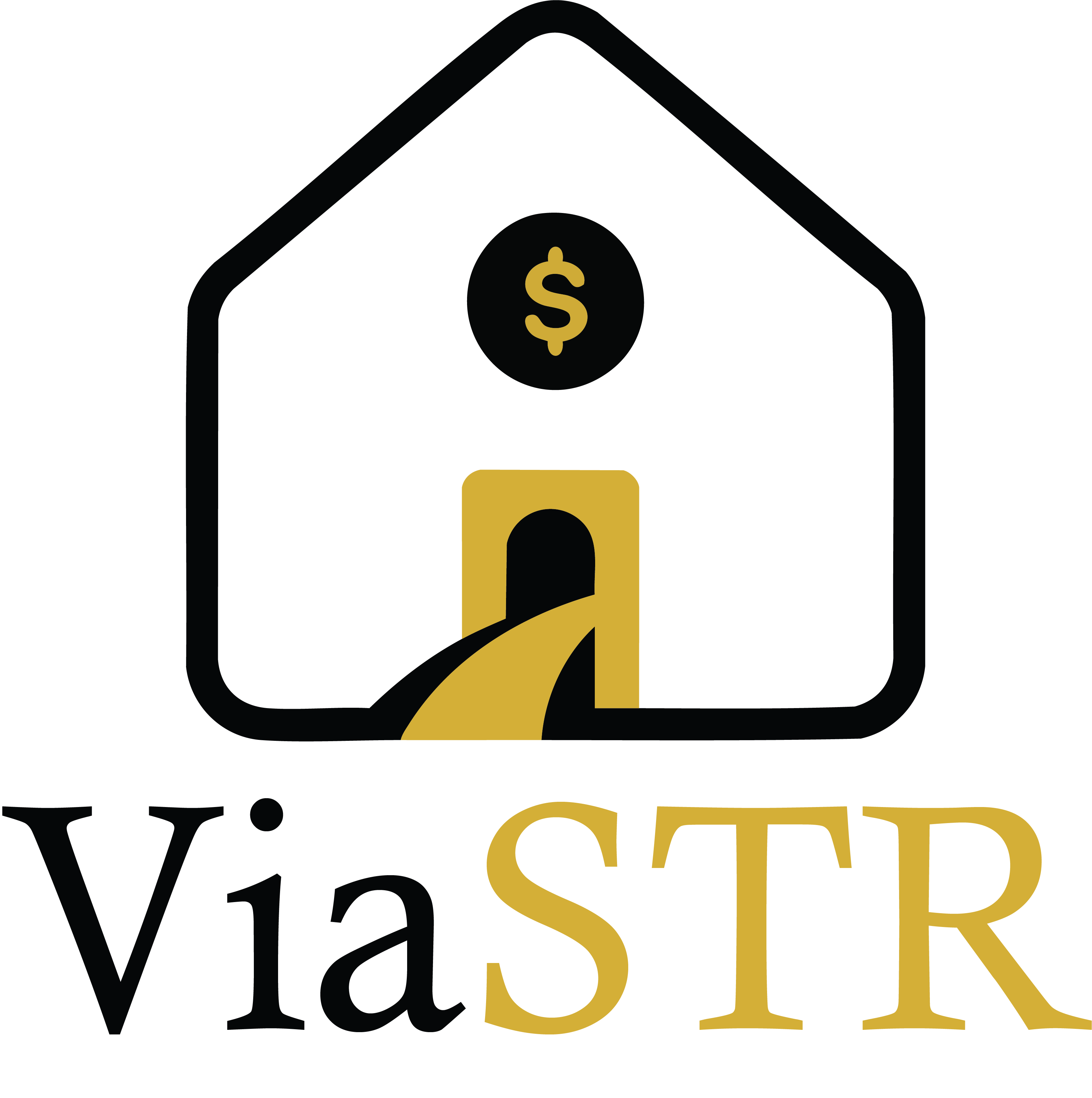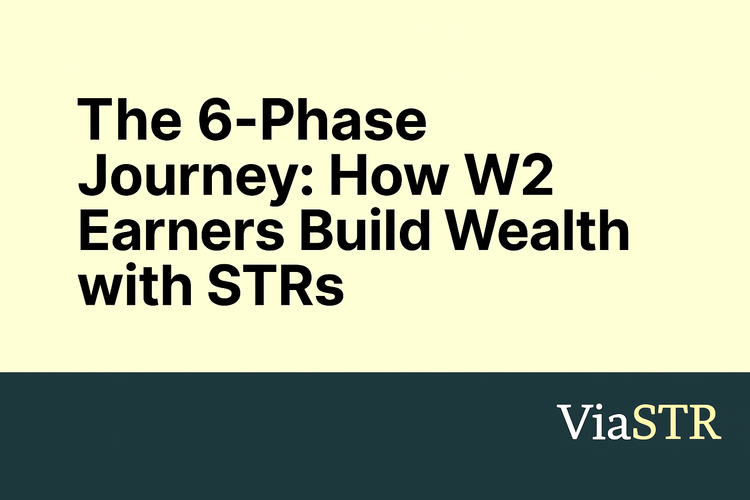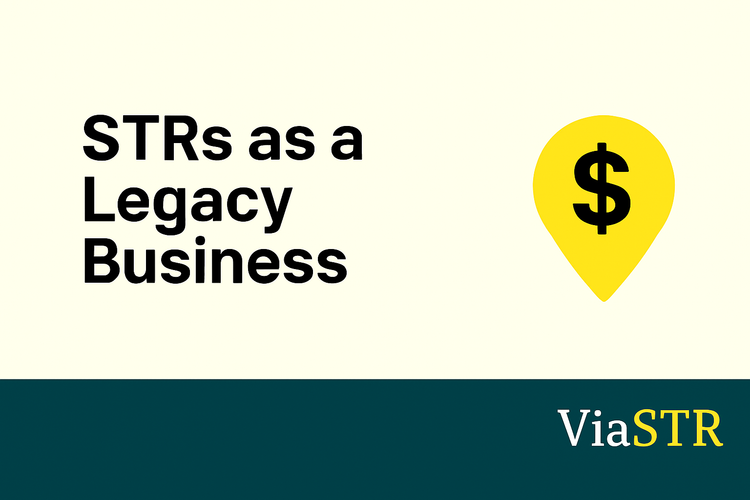When to Sell Your STR vs Hold for Cashflow

At a Glance
- Selling can unlock equity to reinvest in higher-performing properties.
- Holding can provide compounding cashflow and long-term appreciation.
- Market conditions and upcoming CapEx needs heavily influence timing.
- Align the decision with your personal wealth vision — scaling, simplifying, or lifestyle freedom.
- The smartest investors run hold vs. sell models side by side before choosing.
Why This Decision Matters
Owning one or more STRs is an incredible milestone, but the real wealth-building power comes from knowing when to exit and when to hold. This isn’t guesswork—it’s strategy.
Avery Carl, author of Short-Term Rental, Long-Term Wealth, often says the first STR gets you started, but how you reposition over time determines whether you build a few income streams or a scalable portfolio that fuels generational wealth.
1. Equity Position
One of the biggest reasons investors choose to sell is built-up equity.
- Selling can free capital that might be locked in the property.
- Example: Selling a $600K STR with $300K equity could fund two $750K STRs using financing.
- The result: Higher overall cashflow, more diversified income streams, and bigger long-term upside.
💡 If equity is trapped and your return on equity is dropping, it may be time to reposition.
2. Cashflow Performance
Not all STRs age gracefully.
- Income can plateau if your ADR (average daily rate) isn’t keeping pace with rising expenses.
- New competition or oversupply in your market can reduce occupancy.
- If your property is no longer a top-quartile performer, selling may make sense.
But if cashflow is strong and sustainable, holding allows you to benefit from steady income plus appreciation.
3. Market Conditions
Timing is everything.
- Seller’s market: Low inventory and high demand can create outsized gains.
- Regulatory risk: If a city is tightening STR rules, selling before restrictions hit could protect your investment.
- Economic cycles: Rising interest rates may suppress buyer demand, while falling rates can fuel higher sale prices.
“The best exits often happen when your local market is peaking—not just when you feel ready.”
4. CapEx Needs
Upcoming capital expenditures can be a deciding factor.
- Roof, HVAC, septic, or full remodels can cost tens of thousands.
- If these expenses are looming, ask: Is this property still the best place for my capital?
- Sometimes selling before a major CapEx hit keeps your cash working harder elsewhere.
5. Personal Goals
Ultimately, this decision is about alignment with your life and wealth vision.
- Scaling aggressively? Selling may free capital to buy multiple new STRs.
- Simplifying life? Holding fewer properties with strong performance might reduce stress.
- Lifestyle freedom? Maybe cashflow is more valuable to you than equity gains today.
There’s no one-size-fits-all answer. It depends on what you’re optimizing for.
The Smarter Way to Decide: Model Both
The best investors don’t make emotional decisions—they run the numbers.
- Hold Model: Project 5–10 years of cashflow, appreciation, and loan amortization.
- Sell Model: Calculate after-tax proceeds today, factoring in capital gains and depreciation recapture.
By comparing the two side by side, the right choice often becomes clear.
| Factor | Hold (5–10 Years) | Sell Today |
|---|---|---|
| Annual Cashflow | $35,000 | $0 (reset) |
| Equity Growth | $200,000+ | Captured immediately |
| Tax Impact | Deferred | Capital gains + recapture |
| Lifestyle Flexibility | Stable income | Large liquidity event |
The Bottom Line
There’s no universal “right” answer to the sell vs. hold decision—it’s about aligning numbers, market timing, and your personal goals. But running both models side by side removes guesswork and gives you the clarity to act confidently.
Next Steps
👉 Want to understand the tax strategies that impact both selling and holding? Read our guide: Advanced Tax Strategies for STR Investors
See Also
- Scaling Your STR Portfolio: From One Property to Many
- The 6-Phase Journey: How W2 Earners Build Wealth with STRs



